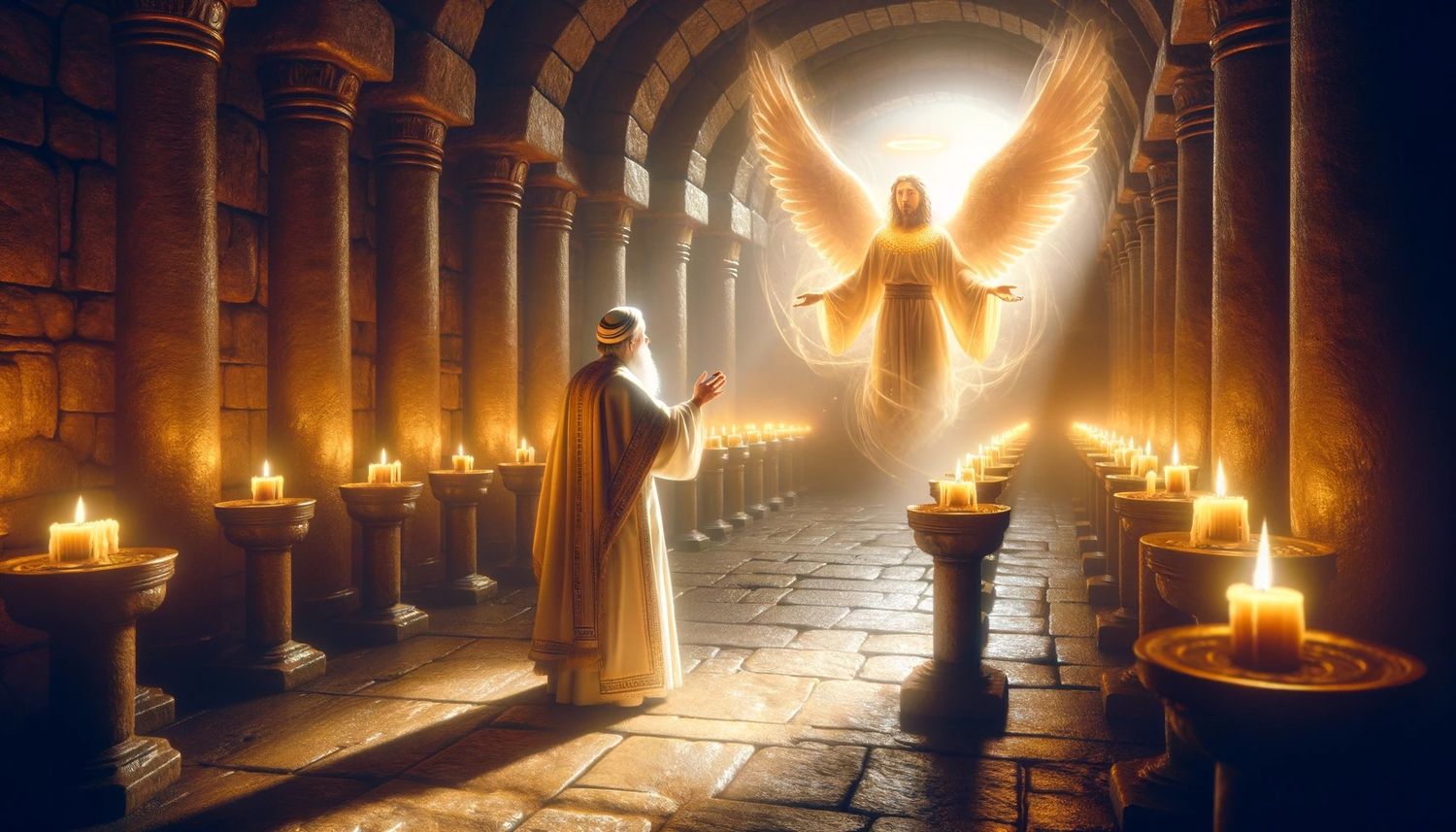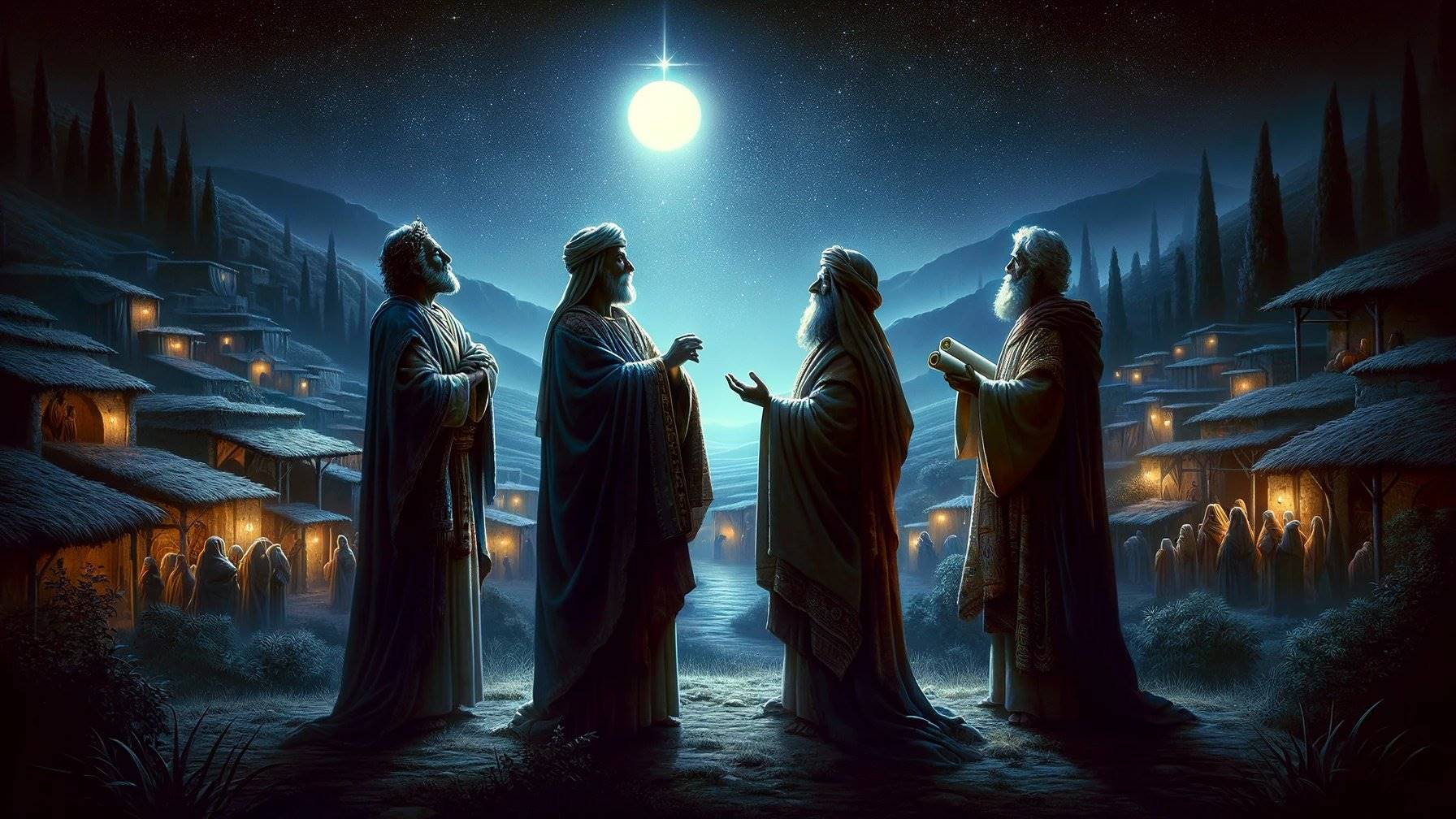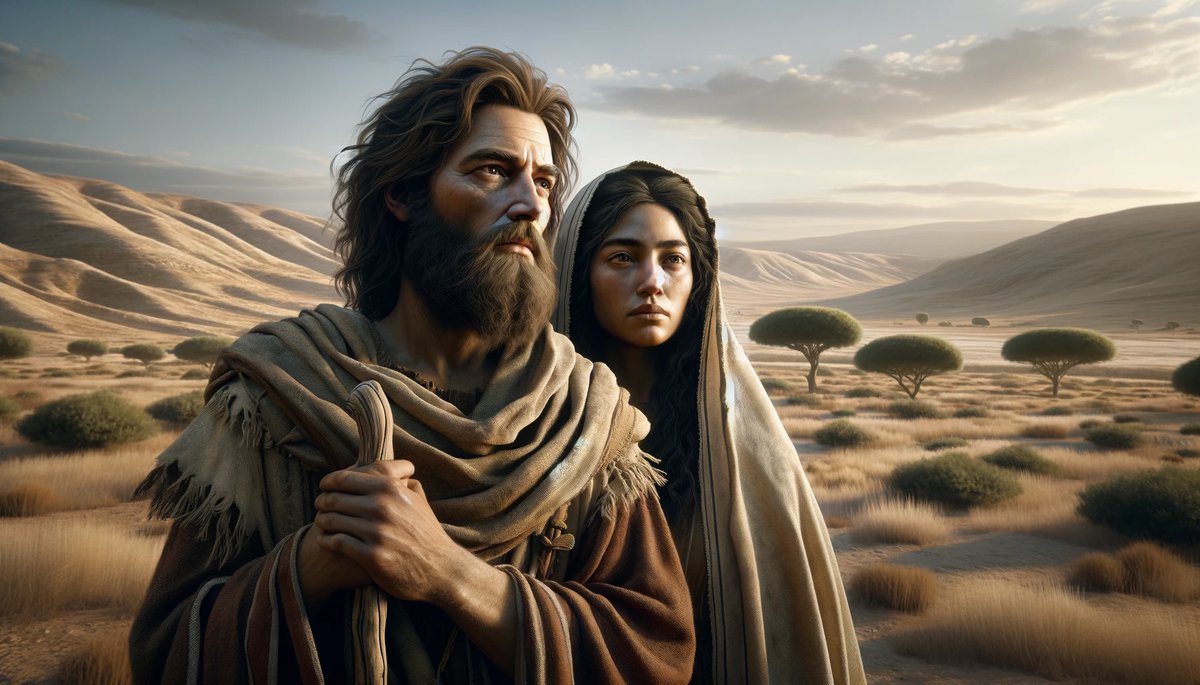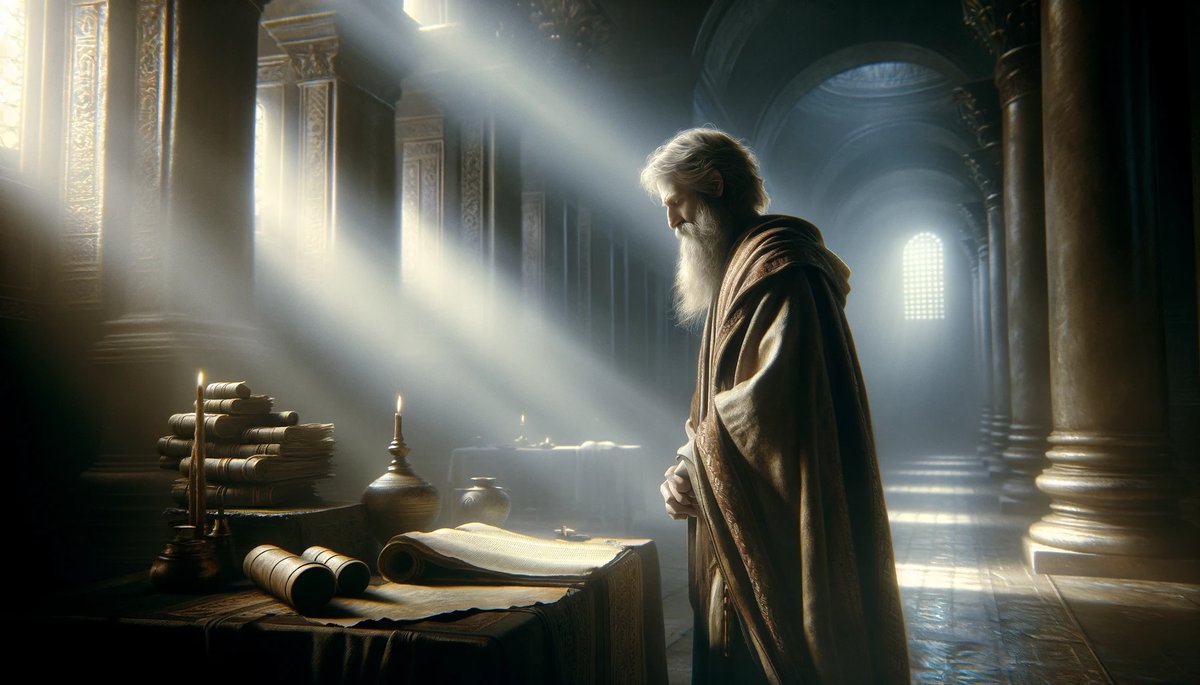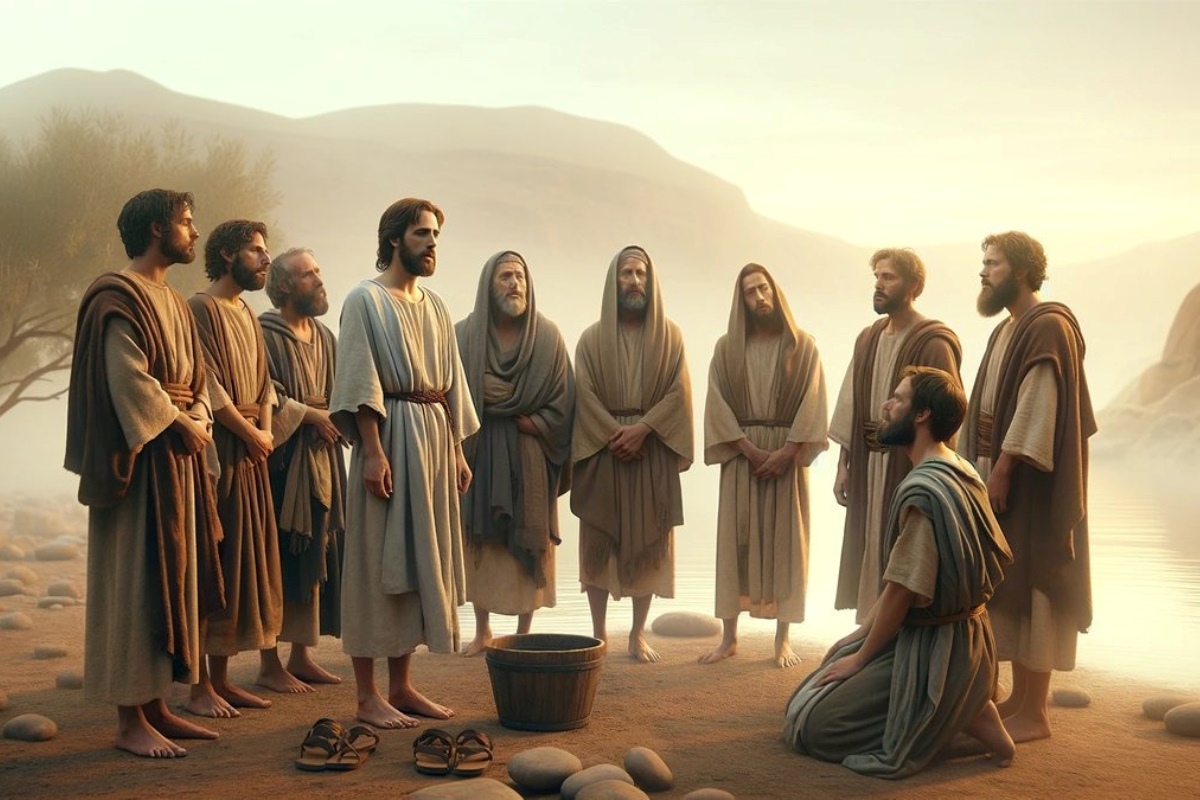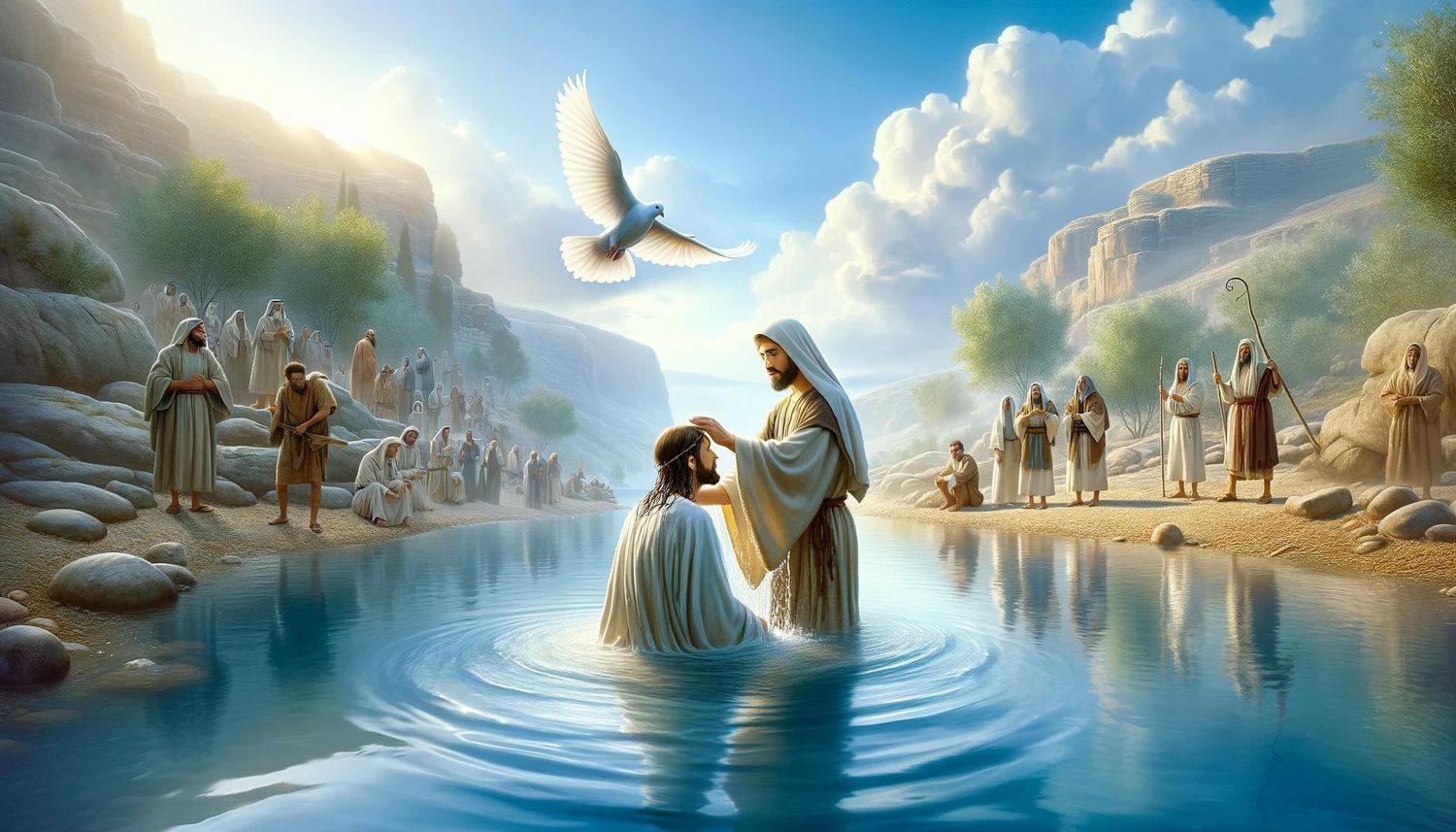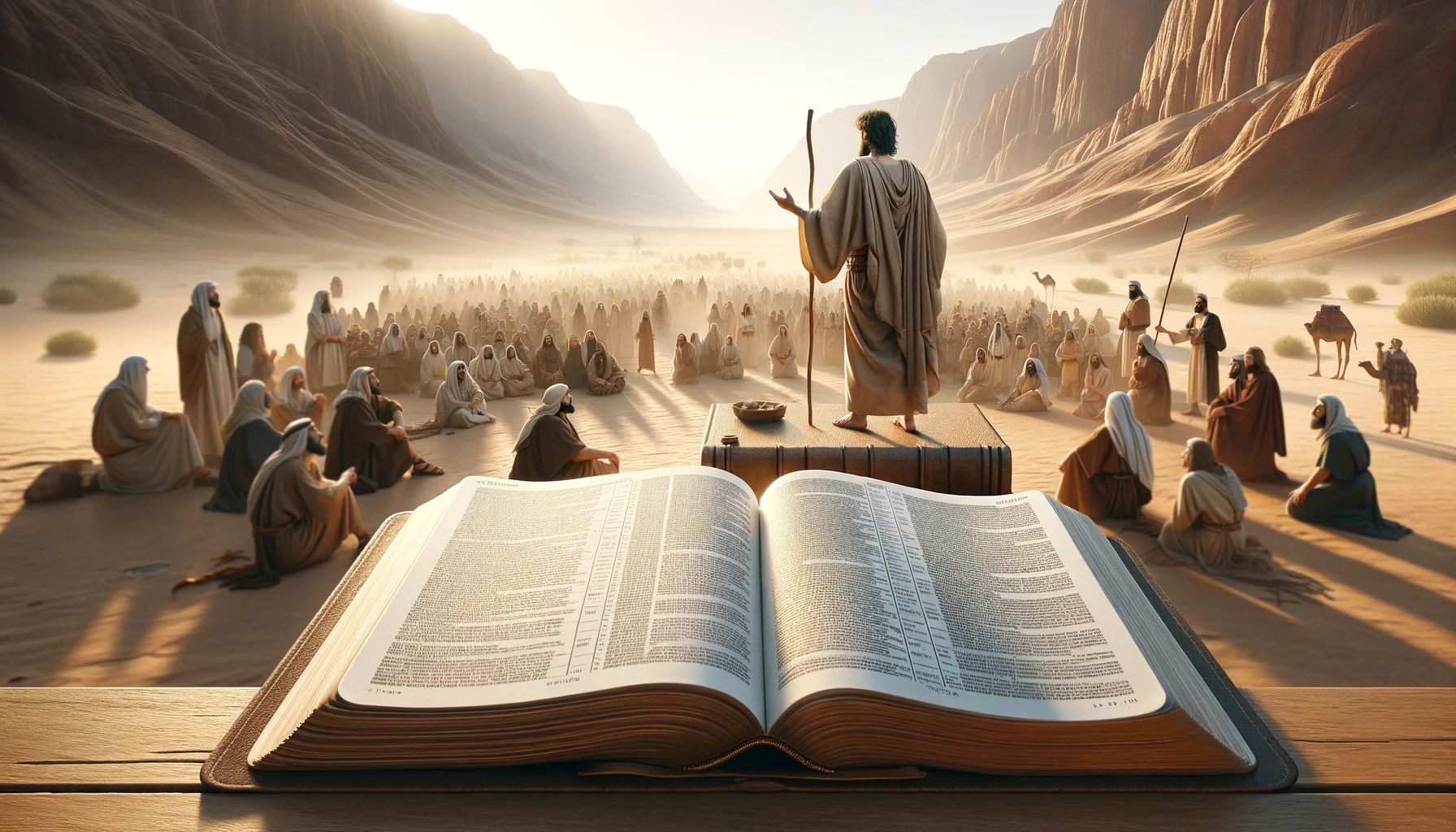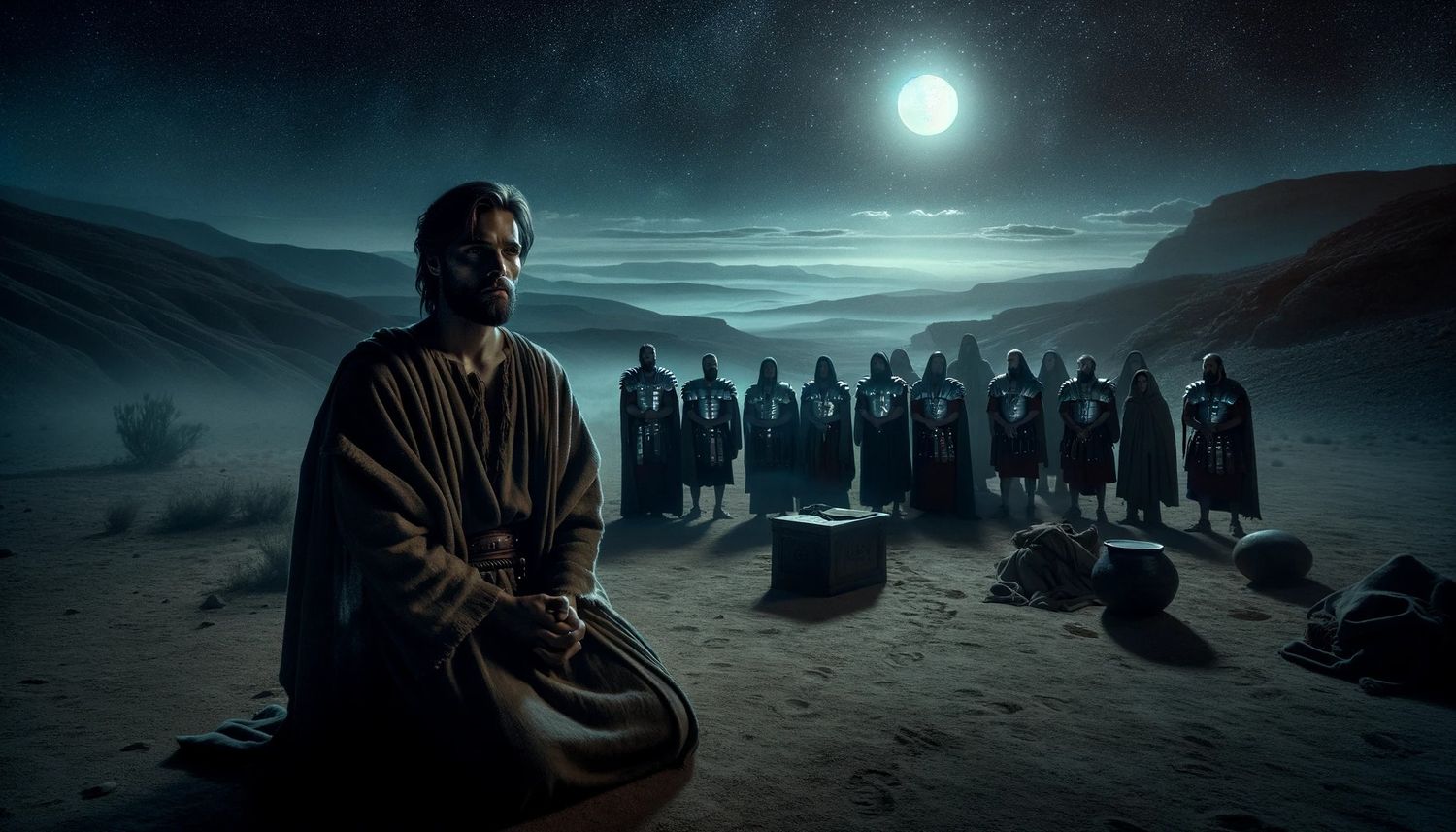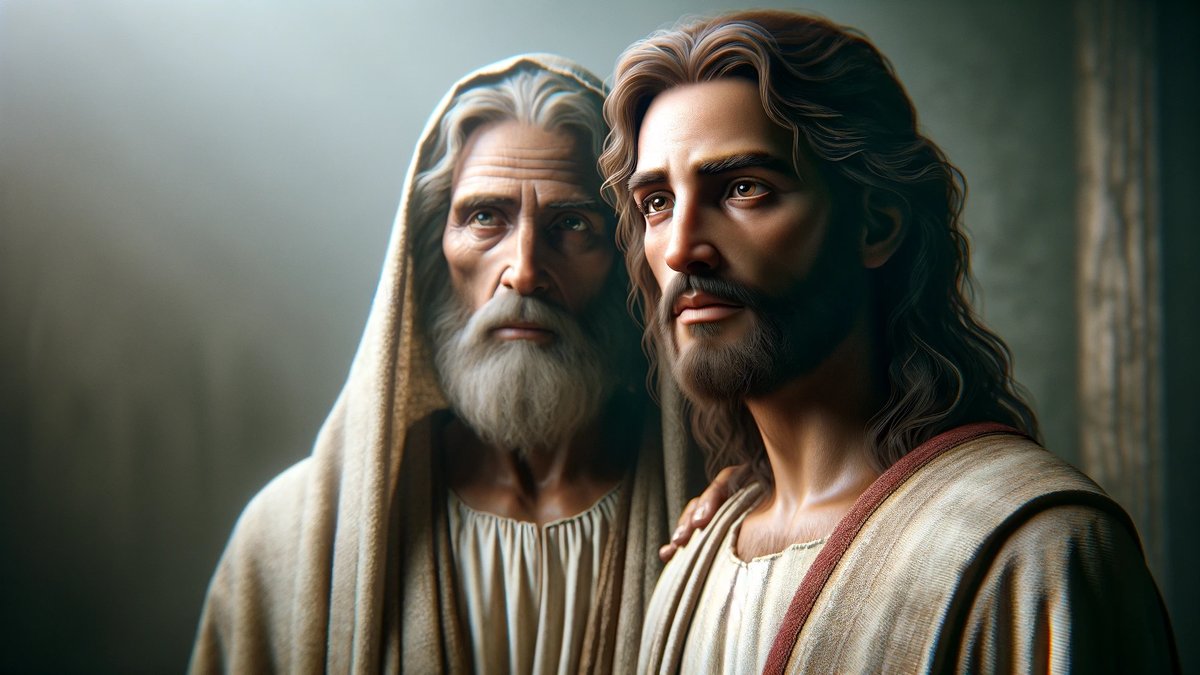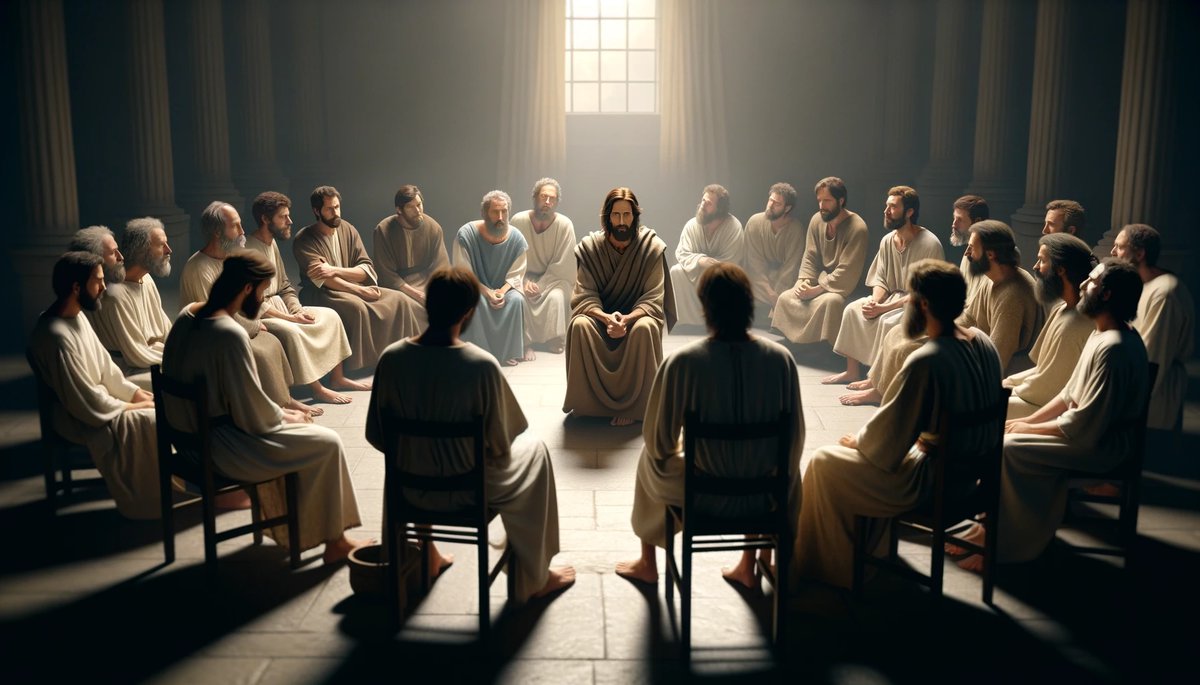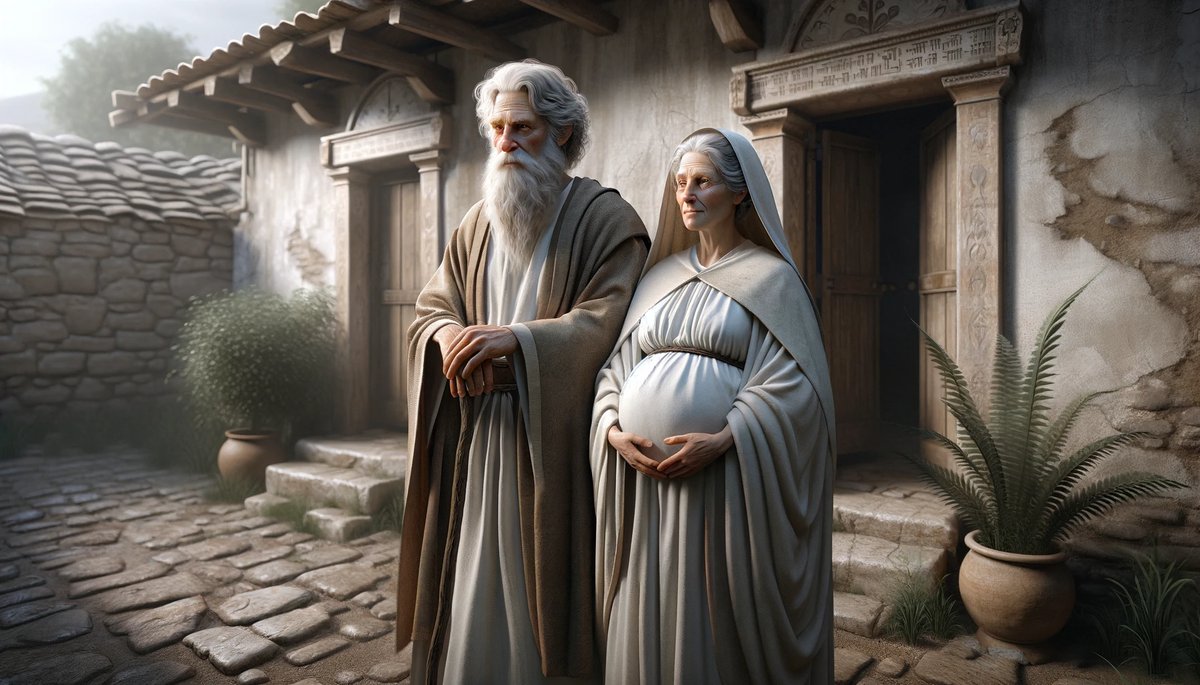Home>Christian Videos>Bible Stories>Who Prophesied About John The Baptist?


Bible Stories
Who Prophesied About John The Baptist?
Published: March 6, 2024
Jason DeRose, Managing Editor at Christian.net, uses his expertise in religion and journalism to deepen understanding of faith's societal impacts. His editorial leadership, coupled with a strong academic background, enriches the platform’s diverse content, earning him recognition in both journalism and religious circles.
Discover the biblical prophecy about John the Baptist and its significance in the Bible. Explore this and more in our collection of Bible stories.
(Many of the links in this article redirect to a specific reviewed product. Your purchase of these products through affiliate links helps to generate commission for Christian.net, at no extra cost. Learn more)
Introduction
Who prophesied about John the Baptist? The coming of John the Baptist was foretold in various religious texts and scriptures. In this article, we will explore the prophecies of Isaiah, Malachi, and Gabriel, and how they all pointed to the arrival of John the Baptist as a significant figure in religious history. These prophecies not only provide insight into the anticipation of John the Baptist's arrival but also shed light on the interconnectedness of different religious traditions and texts.
Read more: Who Prophesied About John The Baptist
The Prophecy of Isaiah
The prophecy of Isaiah, found in the Old Testament of the Bible, specifically in the book of Isaiah, anticipates the coming of John the Baptist. Isaiah 40:3 states, "A voice of one calling: 'In the wilderness prepare the way for the Lord; make straight in the desert a highway for our God.'" This prophecy is significant as it foretells the arrival of a messenger who will prepare the way for the Lord. This messenger is understood to be John the Baptist, who indeed emerged in the wilderness, preaching and baptizing, and preparing the people for the coming of Jesus Christ. The prophecy of Isaiah not only serves as a testament to the anticipation of John the Baptist's arrival but also highlights the interconnectedness of the Old Testament and the New Testament in Christian religious beliefs.
The prophecy of Isaiah also emphasizes the importance of spiritual preparation and repentance, as John the Baptist's message echoed the call for people to repent and turn towards God. This connection between the prophecy of Isaiah and the actions of John the Baptist reinforces the belief that John's role was foretold long before his actual appearance. The fulfillment of this prophecy in the person of John the Baptist is a significant aspect of Christian faith and demonstrates the continuity of divine revelation across different periods of history.
Furthermore, the prophecy of Isaiah not only foreshadows the arrival of John the Baptist but also signifies the continuity of the divine plan for salvation. It serves as a link between the Old Testament and the New Testament, connecting the anticipation of a messenger in the Old Testament with the actual arrival and ministry of John the Baptist in the New Testament. This connection reinforces the belief in the fulfillment of divine prophecies and the coherence of God's plan throughout history. The prophecy of Isaiah, therefore, holds a central place in Christian theology and the understanding of John the Baptist's role in the religious narrative.
The Prophecy of Malachi
The prophecy of Malachi, another significant figure in religious texts, also anticipates the coming of John the Baptist. In the Old Testament, the book of Malachi contains a prophecy that is closely associated with the arrival of John the Baptist. Malachi 3:1 states, "See, I will send my messenger, who will prepare the way before me. Then suddenly the Lord you are seeking will come to his temple; the messenger of the covenant, whom you desire, will come, says the Lord Almighty." This prophecy is crucial as it foretells the sending of a messenger to prepare the way for the Lord, echoing the sentiments expressed in the prophecy of Isaiah. The messenger mentioned in this prophecy is widely interpreted to be John the Baptist, who fulfilled this role by preparing the people for the arrival of Jesus Christ.
The prophecy of Malachi not only reinforces the anticipation of John the Baptist's arrival but also underscores the continuity of divine revelation across different periods of religious history. It signifies the interconnectedness of the Old Testament and the New Testament, as the prophecy of Malachi sets the stage for the fulfillment of its words through the emergence of John the Baptist and the subsequent arrival of Jesus Christ. This interconnectedness highlights the coherence of God's plan for salvation and the significance of John the Baptist in preparing the way for the coming of the Messiah.
Furthermore, the prophecy of Malachi emphasizes the role of the messenger in establishing a connection between the people and the divine. John the Baptist's ministry, characterized by preaching and baptizing, aligns with the prophecy's depiction of a messenger preparing the way for the Lord. The fulfillment of this prophecy through the actions of John the Baptist reinforces the belief in the divine orchestration of events and the fulfillment of ancient prophecies. The prophecy of Malachi, therefore, holds a prominent place in religious teachings and serves as a testament to the anticipation of John the Baptist's pivotal role in the religious narrative.
Moreover, the prophecy of Malachi serves as a bridge between the prophetic traditions of the Old Testament and the actualization of these prophecies in the New Testament. It establishes a connection between the anticipation of a messenger in the Old Testament and the fulfillment of this anticipation through the ministry of John the Baptist. This connection underscores the significance of John the Baptist in the religious narrative and reinforces the belief in the continuity of divine revelation throughout history. The prophecy of Malachi, therefore, plays a crucial role in shaping religious understanding and highlighting the fulfillment of ancient prophecies through the emergence of John the Baptist.
The Prophecy of Gabriel
The prophecy of Gabriel, as recorded in the New Testament of the Bible, specifically in the Gospel of Luke, provides another significant insight into the anticipation of John the Baptist's arrival. The angel Gabriel appears to Zechariah, the father of John the Baptist, and delivers a prophecy regarding the birth and role of John. Gabriel announces to Zechariah that his wife, Elizabeth, will bear a son, and they are to name him John. This prophecy is crucial as it not only foretells the birth of John the Baptist but also outlines his purpose and significance in religious history.
Gabriel's prophecy emphasizes the special role that John the Baptist will fulfill, describing him as one who will go before the Lord in the spirit and power of Elijah, turning the hearts of the fathers to their children and the disobedient to the wisdom of the righteous. This portrayal of John's mission aligns with the anticipation of a significant figure who will prepare the way for the coming of the Messiah, echoing the sentiments expressed in the prophecies of Isaiah and Malachi.
Furthermore, the prophecy of Gabriel serves as a direct link between the Old Testament prophetic tradition and the fulfillment of these prophecies in the New Testament. By announcing the birth and mission of John the Baptist, Gabriel's prophecy establishes a continuity between the anticipation of a messenger in the Old Testament and the realization of this anticipation through the ministry of John. This connection reinforces the belief in the coherence of divine revelation and the fulfillment of ancient prophecies through the emergence of John the Baptist.
Moreover, Gabriel's prophecy not only anticipates the birth and mission of John the Baptist but also underscores the divine orchestration of events leading to the fulfillment of religious prophecies. The angelic announcement to Zechariah and the subsequent birth of John the Baptist serve as a testament to the divine plan for salvation and the significant role that John would play in preparing the way for the coming of Jesus Christ.
The prophecy of Gabriel, therefore, holds a central place in the religious narrative, providing a unique perspective on the anticipation of John the Baptist's arrival and his pivotal role in the fulfillment of divine prophecies. This prophecy serves as a testament to the interconnectedness of different religious traditions and texts, highlighting the continuity of divine revelation and the significance of John the Baptist in religious history.
